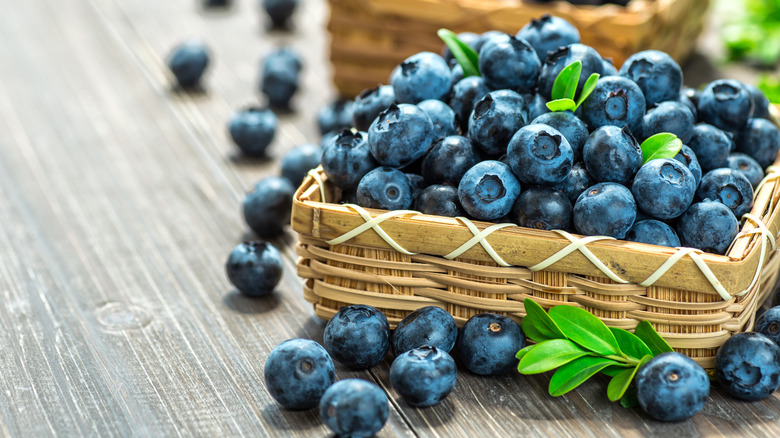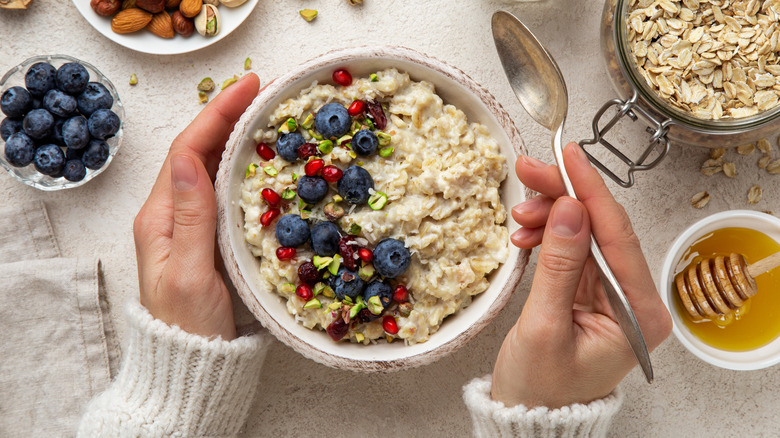Are Blueberries Good For Diabetes?
When a person has diabetes, the pancreas has a hard time creating insulin. With Type 1 diabetes, the pancreas doesn't produce insulin, and managing this condition usually involves some kind of medication, as per the American Diabetes Association. On the other hand, with Type 2 diabetes, the pancreas doesn't manage insulin properly (via the American Diabetes Association). For that reason, some people may need treatments to help manage Type 2 diabetes.
Diet is important when it comes to managing either type of diabetes. In fact, the American Heart Association suggests avoiding packaged, processed foods, and products that are high in simple carbohydrates, sugars, fat, and sodium. The healthiest diabetes diet includes fruits and vegetables, high-fiber foods, and lean proteins. Some fruits, like watermelon and overly ripe bananas, have high amounts of sugar and should be avoided, per Medical News Today. Other fruits, which contain more fructose than sugar, can be eaten in moderation. These include apples, cantaloupe, grapes, kiwis, mangos, oranges, papayas, peaches, pears, pineapples, and raspberries. But what about blueberries?
Blueberries are a superfood
Turns out, blueberries are one of the best fruits anyone can eat, according to Healthline. These small fruits are loaded with vitamins, antioxidants, minerals, and fiber. In fact, a 2011 study showed that rats being fed blueberries resulted in them losing an incredible amount of body weight, liver weight, and total fat mass.
Blueberries help with this process because they contain anthocyanins, which give them their blue color, (via Eating Well). Aside from the coloration, anthocyanins contain antimicrobial and antioxidant characteristics, which enhance visual and neurological health, as per a 2017 study published in Food & Nutrition Research. Anthocyanins are beneficial for people with diabetes since it increases insulin sensitivity and glucose uptake, according to another 2017 study published in Nutrients. Once insulin sensitivity enhances, the body improves how well it absorbs insulin. Therefore, the pancreas doesn't have to produce as much insulin as it usually would (via Eating Well).


